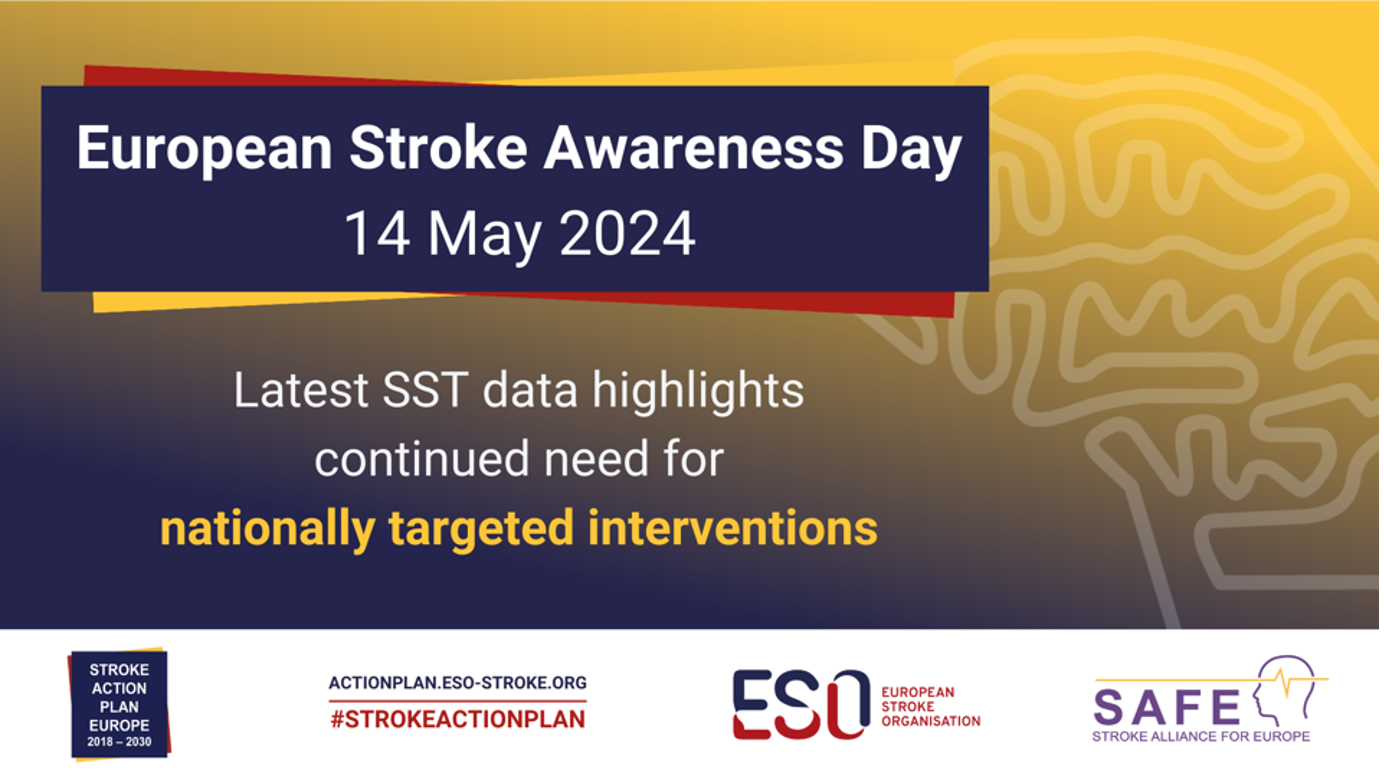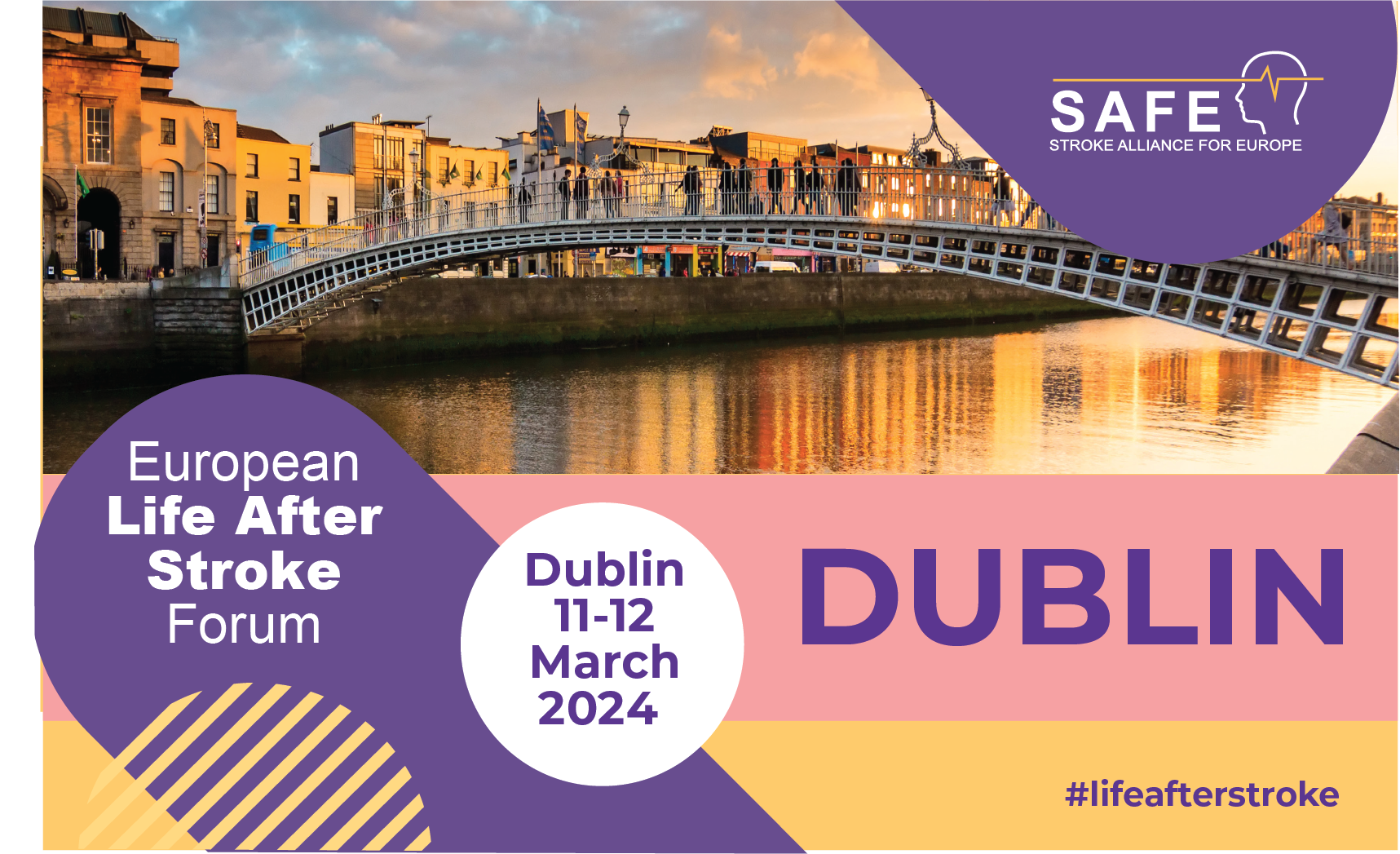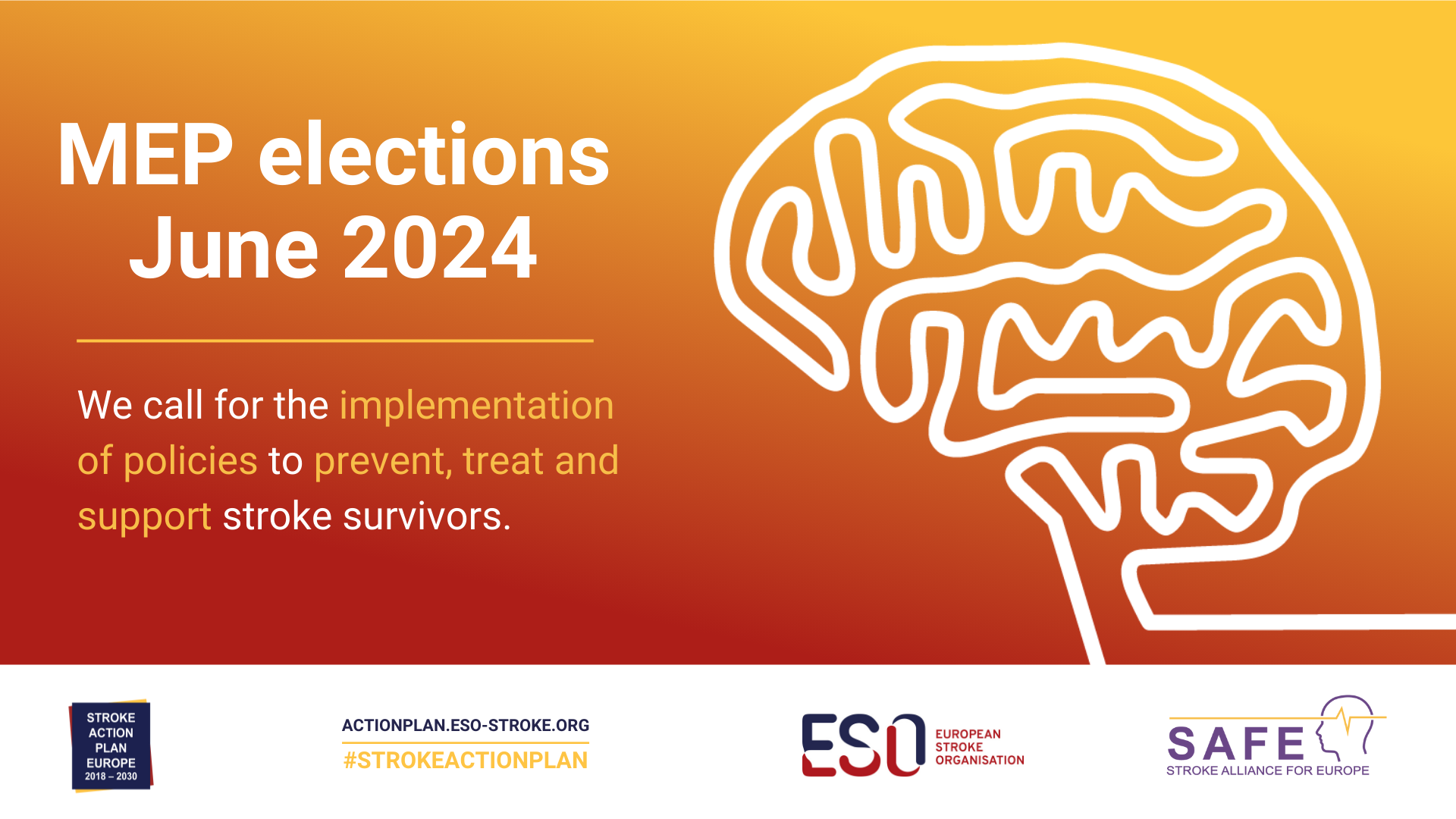
May 16, 2024
Did you miss the European Life After Stroke Forum or want to learn more after attending? Here is a summary of our Forum highlights:
- Abstract book: The book of abstracts features all the accepted abstracts, including oral, scientific and service submissions. Download Abstract Book
- Speaker slides: Access the event presentations from our speakers. View Speaker Slides
- Event report: Download the event report to get a comprehensive overview of the Forum’s sessions and activities. Download Event Report
- Event photos: View a selection of photos from the event here.

May 15, 2024
A story of denial, consequences and a wake-up call
Imagine a typical morning drive to a meeting in Padua, Italy. That’s where it all started for me, just another day, or so I thought. But a strange feeling in my car’s steering wheel set off a chain of events I never saw coming. I wasn’t feeling great that morning, but I brushed it off as just a bit of flu. Even when I started feeling dizzy and my leg went numb, I kept telling myself it was nothing serious. It wasn’t until I struggled to speak during a meeting that I realised something was seriously wrong.
I let someone else drive me to my next meeting. I got home and had dinner. I was feeling worse by the minute. Despite my wife’s pleas, I refused to go to the hospital. I was convinced I could tough it out, even though deep down, I was scared that I had had a stroke. You see, my sister-in-law had a stroke a year earlier, so I knew the symptoms
I said to myself ‘I’m living a very healthy life anyway, I do sport, I haven’t smoked for years, so I certainly don’t have any problems’, but I understood, even if I didn’t want to admit it, that something ‘big’ had happened. I had stopped taking all the pills my doctor had prescribed a while ago, statins, aspirin and blood pressure pills and I had a very busy job that regularly kept me away from home, eating in restaurants.
The next day, things only got worse. Finally, I gave in and went to the hospital. That’s when everything changed. Turns out, I’d tried to ignore my stroke, thinking I was both Rambo (I was angry, but this was not going to get me) and Peter Pan (I am not even fifty – I am too young for this). From that moment on, life changed, not only for me, but also for my family.
My message to you – one thing is certain; you know when something very bad is happening to you. Recognise it, know it! You don’t have to pretend you don’t notice or that you are superior. If you don’t have time to stop for a check, fate will stop you. Ignoring warning signs and thinking you are too young or too invincible only leads to trouble. Listen to your body and take care of yourself!
By Claudio Mari


May 14, 2024
The latest data from the Stroke Action Plan for Europe (SAP-E) Stroke Service Tracker (SST) shed light on Europe’s journey toward better stroke care and support. While there are positive signs of progress, the report also reveals persistent gaps and challenges, highlighting the continued need for nationally targeted interventions.
The SST, which examines 12 key areas of stroke care improvement, shows positive strides in meeting SAP-E targets and improving acute treatment, organisation and quality control of services. Several countries, including the Republic of Moldovia, Bulgaria, Czech Republic, Estonia, Norway, Portugal, Romania, Sweden, and Wales are making commendable progress.
However, access to stroke unit care, follow-up and life after stroke services and support remains uneven. Disparities in care provision across regions underscore the need for targeted interventions to ensure equitable access to quality care and support for all affected by stroke.
The data underscore the urgent need for national stakeholders to address these gaps. By leveraging this information, countries must implement tailored stroke strategies to ensure that everyone affected by stroke receives timely, high-quality care and support, regardless of their location or socioeconomic status.
We urge all European countries to continue to harness the power of their SST data to bridge gaps in their stroke care. Let’s prioritise action and ensure every stroke patient receives the care they deserve. Read more here.
About SAP-E: The SAP-E is a collaborative initiative aimed at improving stroke care across Europe through research, advocacy, and policy development. By bringing together stakeholders from across the healthcare spectrum, SAP-E seeks to set standards and drive positive change to improve outcomes for individuals affected by stroke. Visit the website to find out more.

Mar 19, 2024
Thank you to all those that came to our event European Life After Stroke Forum (ELASF) in Dublin on the 11-12 March. We are delighted to have so many of the European Stroke Community come together to continue to improve Life After Stroke.
To view the abstract book, please download it here.
To view the slides from the event, please click here.
To register to be the first to hear about our 2025 event, please click here.

Mar 18, 2024
The Stroke Alliance for Europe (SAFE) and the European Stroke Organisation (ESO) today launch their joint EU MEP Election Manifesto 2024. For the elections in June we are asking MEP candidates to support improving health across the EU with a focus on improving prevention, care and support of those affected by stroke across Europe.
Every year, nearly 1.5 million people suffer a stroke in 32 European countries1. Stroke can be devastating – leading to death or life-long disability2, shattering the lives of victims and their loved ones. Those who survive will join the more than 9 million European stroke survivors who live with long term health, social, and financial impacts3.
The EU Non-Communicable Disease Initiative, Healthier Together, launched by the European Commission in 2022, provides opportunities for policy action that both EU-level and national policymakers should build on. We call upon all EU level policymakers, to prioritise stroke in health policies, to support member states to develop national stroke plans and lead research into the under-examined areas of stroke.
Following the principles of the Stroke Action Plan for Europe, SAFE and ESO are calling for the implementation of the following policy proposals:
Prior to a stroke
- Primary prevention and risk factor control
- Implement legislation for public health interventions
- Implement risk factor screening and treatment programmes
Amidst the stroke
- Quality of care and stroke management
- Ensure equal access to acute stroke care
- Establish a quality improvement system for stroke services
Life after stroke
- Prevent further stroke and take care of those who had one
- Implement post-rehabilitation personal care plans that offer non-medical support
- Provide sufficient secondary prevention services
- Guarantee equitable access to rehabilitation prior and post discharge
- Develop a European framework of reference for stroke care quality
- Empower a dignified life after stroke
Understanding stroke
- Provide sufficient research funding
- Improve stroke services with better data
- Encourage research into under-examined areas of stroke
References
- At what cost: The economic impact of stroke in Europe. University of Oxford for the Stroke Alliance for Europe (SAFE).
- Sudharsanan, N., Deshmukh, M., & Kalkonde, Y. (2019). Direct estimates of disability-adjusted life years lost due to stroke : a cross-sectional observational study in a demographic surveillance site in rural Gadchiroli, India. BMJ open, 9(11), e028695.
https://doi.org/10.1136/bmjopen-2018-028695.
- Wafa, H. A., Wolfe, C. D. A., Emmett, E., Roth, G. A., Johnson, C. O., & Wang, Y. (2020). Burden of Stroke in Europe: Thirty-Year Projections of Incidence, Prevalence, Deaths, and Disability-Adjusted Life Years. Stroke, 51(8), 2418–2427. https://doi.org/10.1161/STROKEAHA.120.029606.










